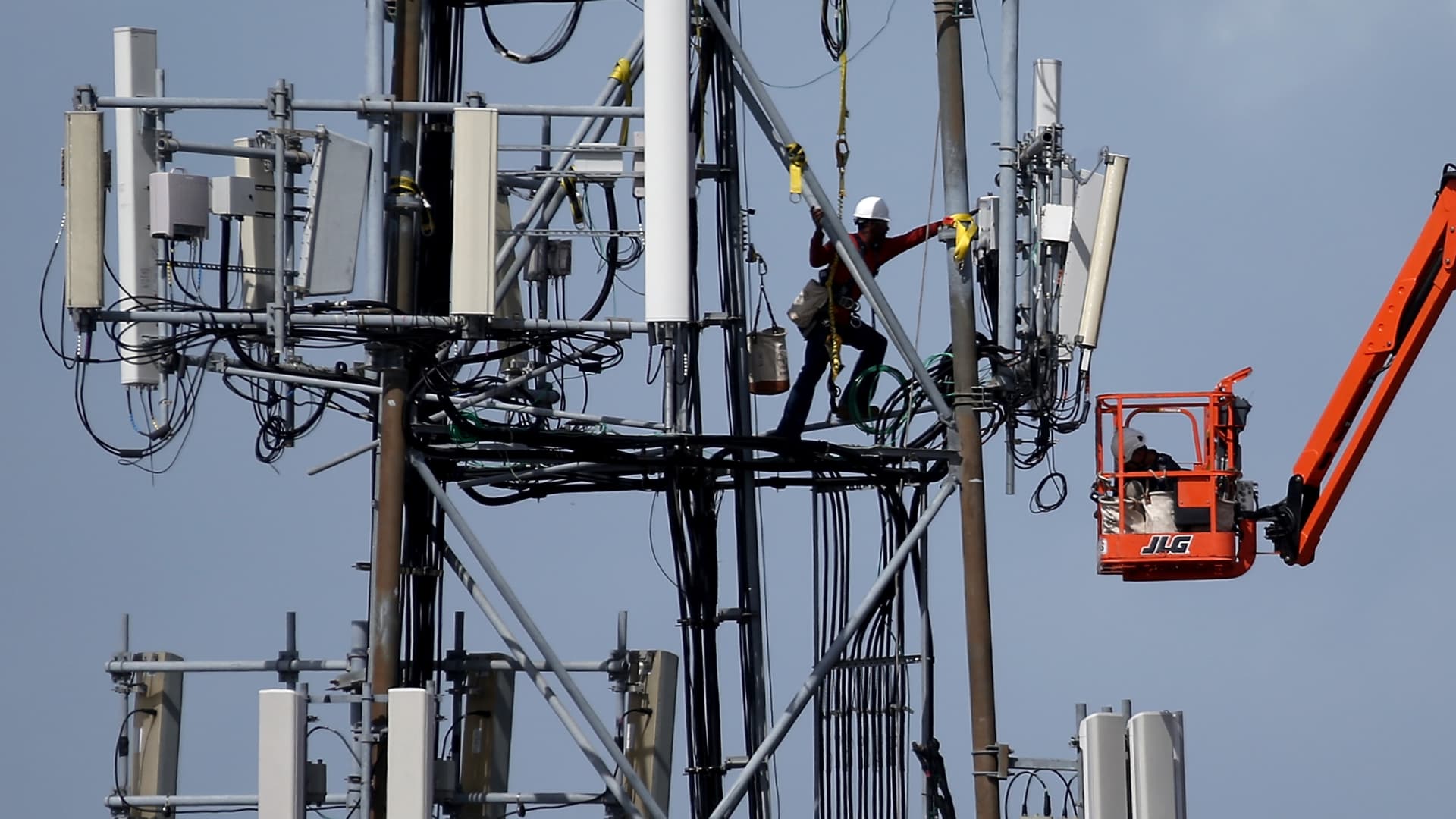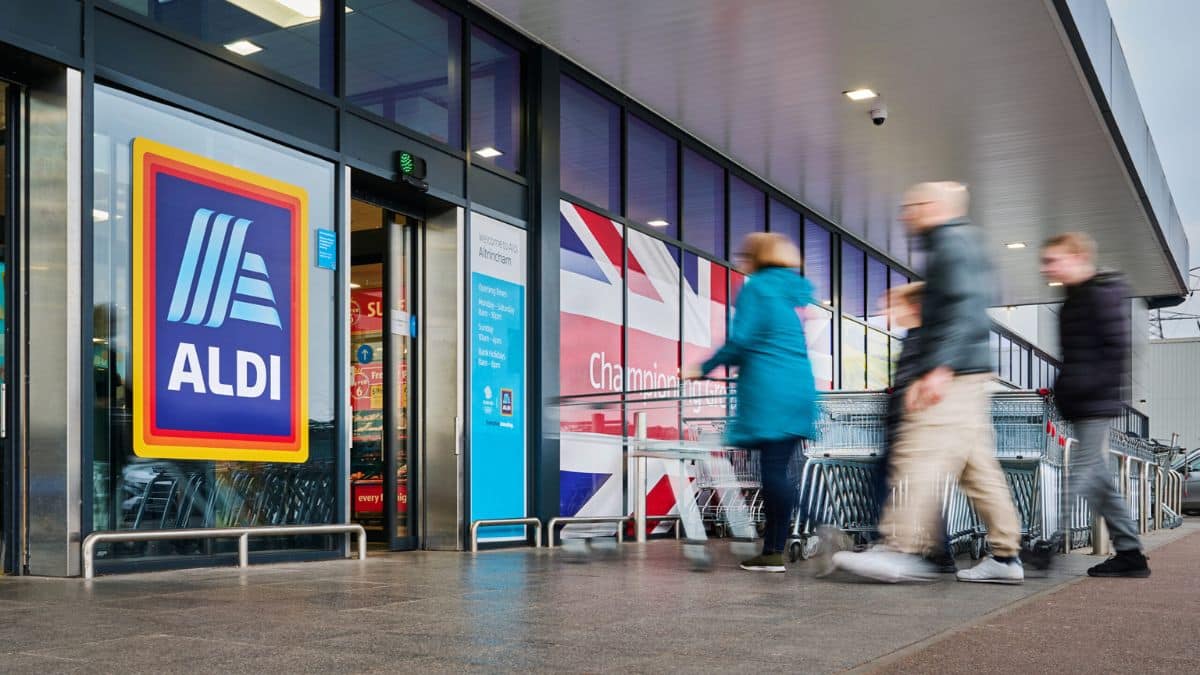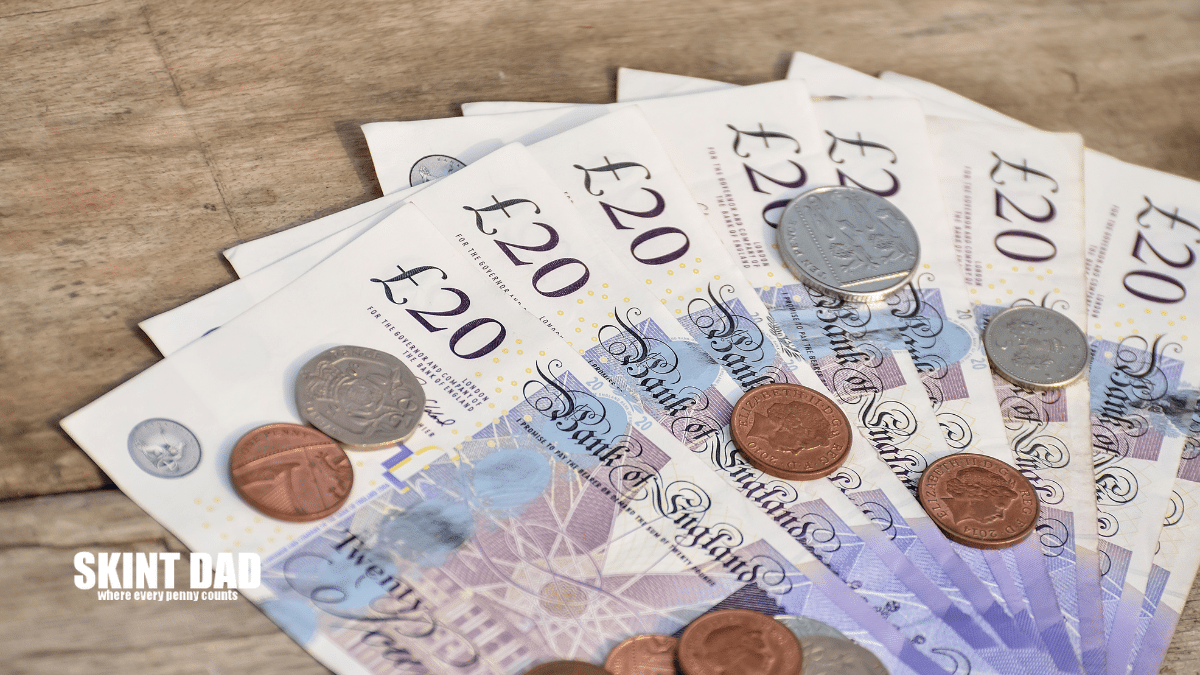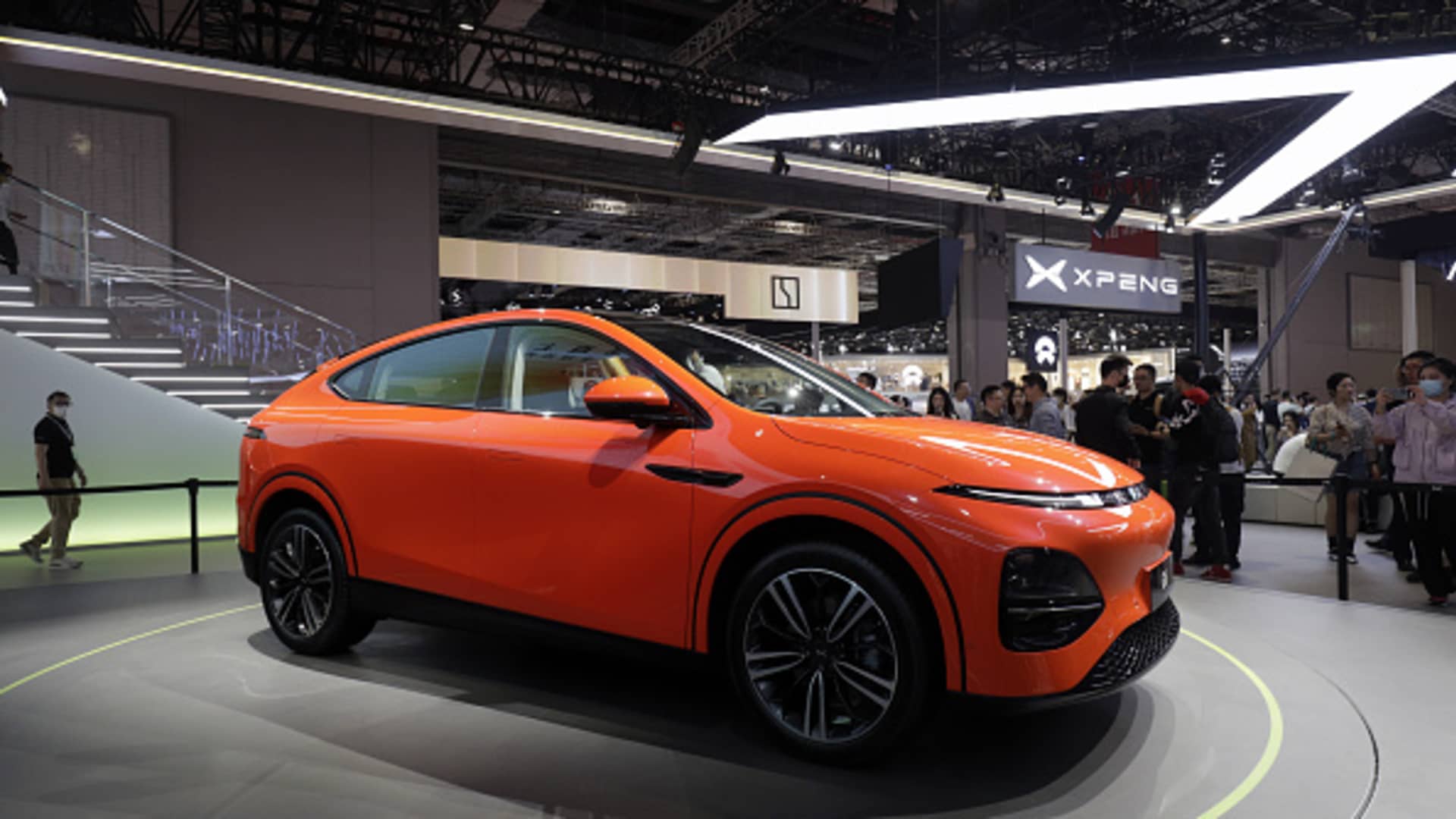
A XPeng Inc. G6 electric sport utility vehicle (SUV).
Qilai Shen | Bloomberg | Getty Images
Xpeng expects cost cuts and its Volkswagen partnership to narrow the firm’s losses, the Chinese EV maker told CNBC in an exclusive interview on Monday.
On Friday, the firm logged its biggest quarterly loss since its U.S. listing in August 2020. Its second-quarter net loss was 2.8 billion yuan, larger than the 2.13 billion yuan loss expected according to a Refinitiv consensus estimate. Its U.S.-listed shares closed 4.28% lower on Friday. On Monday afternoon, Xpeng’s Hong Kong-listed shares were trading more than 2% higher.
Xpeng’s second-quarter deliveries totaled 23,205, a 32.58% drop from 34,422 deliveries in the same period a year ago.
On Friday, CEO He Xiaopeng said the company is cutting costs across the business and that should “substantially drive gross margin improvement in 2024.”
In April, Bloomberg reported the company was planning to trim manufacturing costs, including saving 50% on intelligent driving features by the end of 2024.
“From an expense perspective, we went through a very significant business reorganization as well as changes that we have made. We start to see the regaining of the growth momentum that we have in our business,” Brian Gu, vice chairman and co-president of Xpeng, told CNBC’s “Street Signs Asia” on Monday.
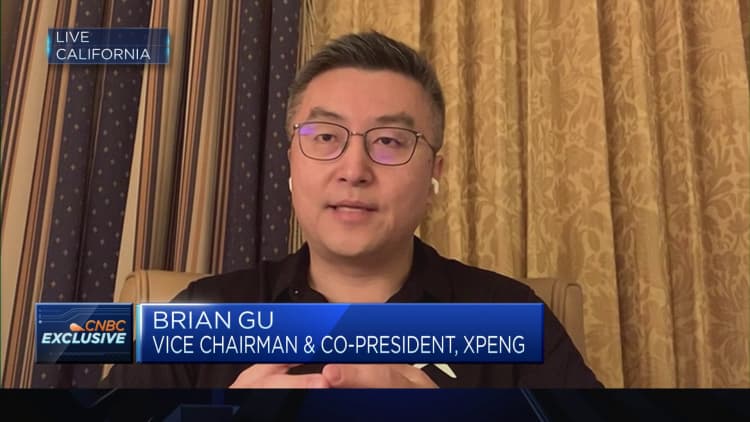
Xpeng is attempting to revive its business this year, after its share price sank by more than 80% in 2022. The firm struggled with a tough macroeconomic environment in China and a price war among domestic rivals and Tesla, which slashed the prices of its Model S and Model X last week.
“The demand side actually remains pretty robust. I think it continues to grow despite the economic backdrop. But the same time, the competition has intensified in the first half, with more players launching more new models and being very aggressive on price competition,” said Gu.
“In order to gain better profitability, we also have endeavor to spend a lot of time on cost cutting. Later next year, we expect our total vehicle BOM [bill of materials] costs to be reduced by up to 25%. That will give us a big tool to increase profitability as well,” said Gu.
In automotive manufacturing, BOMs list all the parts required to build a vehicle, such as an engine, brakes, seats and dashboards.
BofA Securities said in a report Monday that it expects Xpeng’s cooperation with Volkswagen to “improve its financial position and likely enhance its supply chain management.”
BofA upgraded Xpeng from “neutral” to “buy” at $22 per share, up from its previous price target of $16.30 per share.
In late July, Germany’s Volkswagen Group said it is injecting about $700 million in Xpeng and taking a 4.99% stake in the company.
The partnership will see both companies co-developing two new EVs that will incorporate Xpeng’s advanced driver-assist software for the Chinese market with a rollout target for 2026.
Global and local automakers are promoting advanced tech to compete in China — the world’s largest EV market. BofA Securities in a May report said it expects China to hold 40%-45% market share in 2025.
“With the Volkswagen agreement, we also anticipate meaningful contribution to our bottom line starting next year. So that’s also another tool we can use to increase our profitability,” said Gu.
In addition to planned new models, Xpeng has “updated versions of current models” set to be launched next year, said Gu.
“We anticipate those new models will carry more favorable gross margins which also will help our profitability and product mix,” said Gu.
The firm expects its latest model — the G6 Ultra Smart Coupe SUV, which was launched at the end of the second quarter — to boost margins.
“We see an improving product mix and a stronger cost control improving its gross profit margin in 2024-2025E. We expect its new model pipeline in second half of 2023 to 2025 to improve its sales volume growth,” said BofA Securities.
— CNBC’s Michael Bloom contributed to this report.

